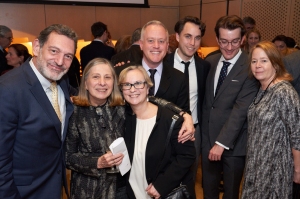You are currently browsing the tag archive for the ‘Bridget Carr’ tag.
If you’ve tuned into CSOtv recently, you may have noticed that in the December 1953 concert, Lois Schaefer is sitting in the first-chair position!
Hired by fifth music director Rafael Kubelík in 1951, Schaefer served the Orchestra as assistant principal flute until 1954. She was the third woman rostered in the flute section, following Caroline Solfronk Vacha (1943-1946) and Peggy Hardin (1945-1951).
Born in Yakima, Washington, on March 10, 1924, Schaefer attended the Interlochen Summer Arts Camp as a teenager, later studying at the New England Conservatory of Music, where she studied with Georges Laurent (principal flute of the Boston Symphony Orchestra), Frank Horsfall, and Sebastian Caratelli. She completed her bachelor’s of music in flute performance in 1946 and an artist diploma the following year.

During her time in Chicago, Schaefer also taught at Chicago Musical College. By 1956, she returned east and was hired as principal flute of the New York City Opera, where she would remain for ten seasons. During this time, she also performed and recorded with the NBC Opera Theatre Orchestra, the RCA Victor Symphony Orchestra, and the Columbia Symphony Orchestra.
In 1965, Schaefer was hired by then–music director Erich Leinsdorf to the position of flute and principal piccolo for the Boston Symphony Orchestra, her “dream job.” During her twenty-five-year tenure, she also served as principal piccolo for the Boston Pops Orchestra. “In more than 2,000 Boston Pops performances of [John Philip Sousa‘s] ‘The Stars and Stripes Forever,’ a moment always arrived when Lois Schaefer was the star of the show,” wrote Bryan Marquard in the Boston Globe. “Though she was a master of the memorable piccolo solo that is the highlight of the song, she didn’t take her eyes off the musical score—not in her first concert, not in her 2,000th. She was determined to never make a mistake on her notoriously difficult instrument, which sometimes waits silently through portions of concerts, only to suddenly be highlighted for all ears to hear.”
Schaefer served on the faculty of the New England Conservatory of Music from 1965 until 1992. She also was a board member of the National Flute Association, receiving their second-ever lifetime achievement award in 1993.
According to her sister Winifred Mayes, a cellist with the BSO from 1954 until 1964, Schaefer was “very, very happy in Boston. . . . She loved the orchestra and the people in it. She always felt very secure and warm towards them, and they towards her. I think it was perfect for her.”
In her final season in Boston, Schaefer was soloist in Daniel Pinkham‘s Concerto Piccolo, written especially for her. Upon her retirement in 1990, Globe music critic Richard Dyer wrote, “For her twenty-five years as solo piccolo, Lois Schaefer has been the highest, brightest voice in the Boston Symphony Orchestra. . . . To hear her in a Rossini overture is like watching the sunlight dance on rippling water. She can also break your heart with a perfectly placed high pianissimo in a Mahler or Shostakovich slow movement.”
Lois Schaefer died at the home she shared with her sister in Sequim, Washington, on January 31, 2020, at the age of ninety-five. She was survived by her sister Winifred Mayes until her passing, also in Sequim, on December 15, 2020, at the age of one hundred and one.
Lois Schaefer performs as first-chair flute in a December 9, 1953, Hour of Music telecast, currently available on CSOtv. Guest conductor and former music director Désiré Defauw leads the Chicago Symphony Orchestra in Grétry’s Three Dances from Cephalus and Procris, a suite from Fauré’s Pelleas and Melisande, and Schumann’s Fourth Symphony.
Special thanks to Bridget Carr and the Boston Symphony Orchestra Archives.














